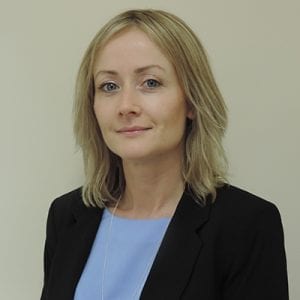
In this blog, former Programme Manager Martina Goss explains how to maximise the opportunities available to you on Phase 1 of New Frontiers.
So you have the innovative business idea and received the good news that you have secured your place on Phase 1 of New Frontiers. Now the fun begins – it’s time to start validating the commercial potential of your idea. But with so many things to do, how can you ensure that you maximise the use of your time on Phase 1 and ensure you are on the right track towards validating your idea to arrive at a go/no go decision? Here are some points to consider to help you stay focused on what matters most.
The three stages of a startup
Whether you are just starting out as a first-time founder or are a serial entrepreneur, there’s a chance you may have heard of the three stages of a startup: problem/solution fit, product/market fit and scale. As you begin your entrepreneurial journey, think of New Frontiers Phase 1 as a great resource for helping you navigate towards problem/solution fit. Simply put, think of this as the point you arrive at when you have a potential solution to a market problem – a problem that has been validated with a small group of early customers, also known as ‘early adopters’. If you try skipping the problem/solution fit stage it will soon catch up with you – possibly when you launch your product only to find out that nobody wants it, or is willing to pay for it…
Your journey to problem/solution fit will involve you having to test a number of assumptions about your business model, ensuring that your proposed product is desirable (customers want it), viable (customers are willing to pay for it) and feasible (you can actually build it).
 The innovator mindset
The innovator mindset
So, where do you start? As the founder of your startup, a good place to start is to look inward and ensure you are starting with the right “innovator’s mindsets“. Ash Maurya, the creator of the popular one-page business modelling tool the Lean Canvas and CEO & founder of Leanstack, has created a list of these known as the 10 Continuous Innovation Mindsets. Aptly, first and foremost, mindset number 1 is “Love the Problem, Not Your Solution”.
“Love the Problem, Not Your Solution”
Sometimes, for a founder or innovator, this mindset can be particularly hard to embrace, especially if you have already spent a huge amount of time, money and energy building out your solution without having first done any problem discovery work with potential customers.
Embracing this mindset is critical because it ensures that you are actually solving a market problem – ideally, one that has a large market opportunity and is financially worth solving. There is a reason the word problem appears at the first stage of a startup. After jotting down your business idea on a Lean Canvas, one of your first steps should be to conduct problem discovery interviews with different customer segments in your target market.
Problem discovery interviews are critical for allowing you to gain insights and a deep understanding of the problems and pains that customers are experiencing with their current solutions (i.e. your true competition). Having this knowledge helps to shape the design of your solution and allows the innovator and entrepreneur within you to build something of value, which is 10x better than the way it is currently being done today. Getting traction and paying customers is the ultimate goal of any start-up, and to get there you need to ensure you are building something that customers want and are willing to pay for.
Phase 1 of New Frontiers is a fantastic opportunity for you to test your idea in a safe environment surrounded by like-minded entrepreneurs. This short phase is not just about attending workshops and subsequently making a Phase 2 application, it is all about applying the knowledge and advice you are being exposed to and using it to help you validate your idea with the market, allowing you to move towards a go or no-go decision about your idea.
Getting the most from Phase 1
With everything you’ve just read in mind, here are my 10 tips for your New Frontiers Phase 1 journey:
- Dream big but start small. Balance your long-term ambition with the now. Big dreams start with small actions – commit 100% to completing the necessary market validation work.
- Fully engage with the Phase 1 programme and resources offered. Facilitators and programme managers are there to support you. Asking questions is free.
- Set aside time weekly for the validation work described above, which may require you to put in additional hours in the evenings and the weekends. This is when focusing your energy on what matters most becomes critical.
- If you don’t already, try getting into the habit of setting small goals and staying accountable to them. Start acting in order of priority. It is very easy to get distracted into further building out your solution, but if you haven’t conducted enough customer problem discovery interviews you need to re-focus. Learn to say no to other distractions.
- Drop your need for perfection. Idea validation is a time for exploration and curiosity. Be curious, agile and adaptive. Ask big questions.
- Use the insights, evidence and feedback that you are getting from the market to adapt, pivot or reshape your thinking about your business model and possible solution.
- If you do not come from a business or commercial background, don’t fret. Accept that learning is all part of the New Frontiers entrepreneur development process.
- Starting a new business can be stressful and lonely so ensure you seek the support of family members or friends. If you are lucky to have a co-founder, team members or advisors be sure to get them on board and involved.
- Understand the criteria and expectations of a New Frontiers Phase 2 application.
- If at the end of Phase 1, you decide your idea is a no-go but you are still passionate about start-ups, you can always apply the knowledge and skills you have learned elsewhere. The transferable skills will be valuable for other business opportunities, or you could join another Irish startup (they are always looking for co-founders!)
Going beyond Phase 1
If, by the end of Phase 1, you have uncovered a problem worth solving and are starting to see early signs of traction, a natural next step in progression would be to continue your New Frontiers journey by applying for Phase 2. Phase 2 is a competitive process, so the more you have validated and de-risked your business model and assumptions in Phase 1, the better equipped you are for making a good Phase 2 application (there are other selection criteria for Phase 2 and you will receive further guidance on this during Phase 1). It may be the case that you may have a limited window between the completion of Phase 1 and submitting an application for Phase 2, so you need to be fully engaged and committed to the Phase 1 validation process. Use your time wisely – invest it, don’t spend it!
Securing a place on New Frontiers Phase 2 will open up a host of invaluable supports for your startup. For example, the financial support of a €15,000 tax-free stipend, expert-led workshops, personalised mentorship, access to Institute/University facilities, investor pitching panels, widening of your commercial networks and – critically – being on a programme funded by Enterprise Ireland (ranked first globally by PitchBook in terms of venture capital funding deal counts). New Frontiers really can create new beginnings and new opportunities for your startup.
Next Steps
If you have a potentially innovative idea lurking in your head, take the first step today by finding your nearest incubation centre and registering your interest in their next New Frontiers programme. Don’t let your ideas go to waste. 2022 could be your year. Nothing ventured, nothing gained. Best of luck!
About the author
 Martina Goss
Martina Goss
Martina Goss was previously the New Frontiers Programme Manager at Dundalk Institute of Technology (Regional Development Centre) and Dublin City University (DCU Invent). She is a certified lean startup coach with Ash Maurya (creator of the popular one-page business modelling tool Lean Canvas) and coaches on his 90 Day Start-Up programme.
Martina is a qualified chartered accountant, having spent 20+ years working with business owners across a wide range of industries. She runs her own startup training, coaching and consulting business offering supports in the areas of Lean Canvas, customer discovery interviews, financial modelling and finances for startups.
She is a practising member with The One Thing – the company behind the Wall Street Journal’s best-selling business book of the same name. The One Thing focuses on the surprisingly simple truth behind achieving extraordinary results.
Recent articles

Raise Your Startup’s Visibility & Credibility By Entering These Competitions

Founder Perspectives: Lessons From Building Businesses In Sustainability

Tech Startups In The Age Of AI: Alumnus Paul Savage On Speed, Quality & Risk
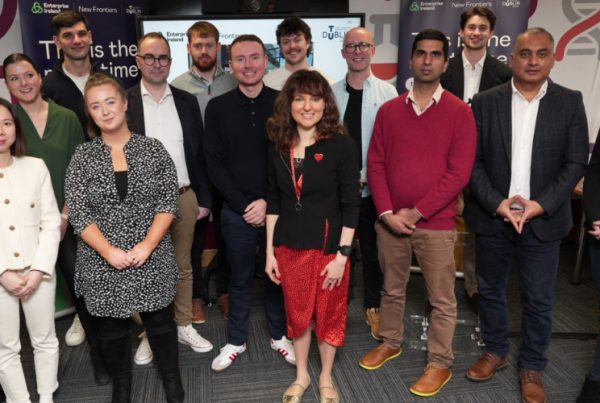
Fourteen Startup Founders Graduate From Phase 2 Of New Frontiers In Tallaght
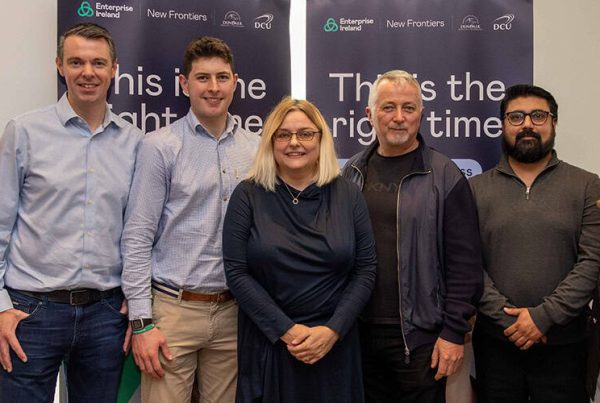
Eleven Founders Graduate From New Frontiers In The Border Mid-East Region

Laying The Right Groundwork Helps Startups Prepare For Export Success
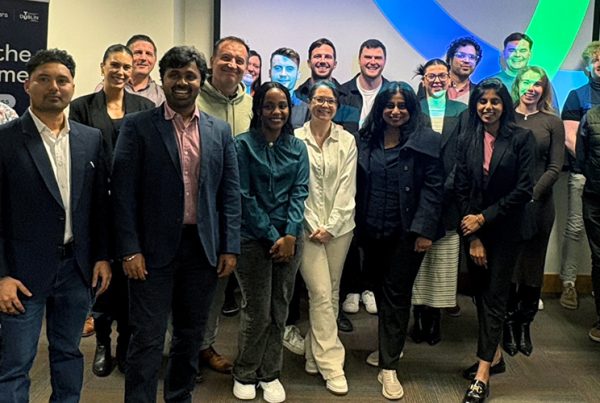
Startup In Dublin: Learn More About New Frontiers On TU Dublin’s Grangegorman Campus
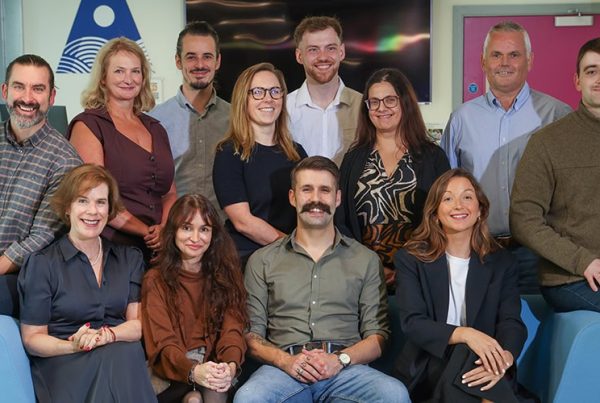
 The innovator mindset
The innovator mindset